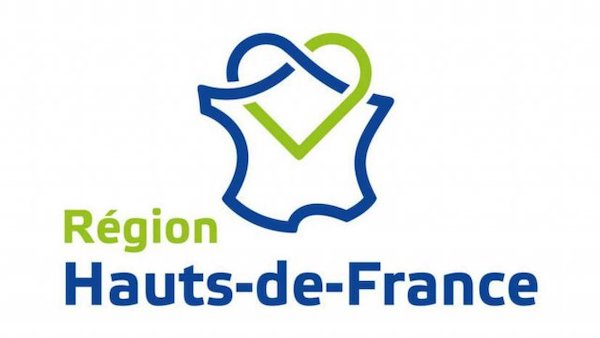With more than 6 million inhabitants, the third largest region in terms of population and the second most densely populated, the Hauts-de-France region stands out for its higher than average unemployment (11.9% of the active population), poverty (18.3% of the population) and illiteracy (11.5%) rates. More than one million people in the region live below the poverty line. In total, there are approximately 1.2 million people who find themselves in a situation of failure or far from the digital world.
This situation confronts the 75,000 social workers with new expectations from users, as well as a transformation of practices and professions.
Over the past few years, the Region has been multiplying its actions to promote digital inclusion (such as support for the " digital roadmaps " of inter-municipalities or calls for projects for third places), as evidenced by the 1,400 digital resource centers present on the territory.
The Regional Directorate of Youth, Sports and Social Cohesion (DRJSCS) had, for its part, undertaken to implement a plan to fight against illiteracy in the Hauts-de-France.
The Hauts-de-France region and the Amiens metropolis, in partnership with the regional prefecture, were part of the first promotion of the " Territory of action for an inclusive digital ", labeled by the state in 2019. The "Territoire d'Action pour un Numérique Inclusif (TANI)" agreement was signed between the State and the local authorities on January 17, 2020.
The Assemblers: a territorial hub for digital inclusion
The Assemblers is one of the eleven winners of the call for projects " Hubs France Connectée"."The Assemblers is a collective project that aims to bring together all the organizations, public or private, that are working for this inclusive and creative digital transformation."Supported by the region and the laboratory for innovation and social investment in the social and solidarity economy (SIILAB, DRJSCS), this territorial Hub is the result of the mobilization of institutional actors from the five departments, companies and intercommunities around the project. It already brings together a hundred or so public and social partners and digital mediation associations, the main beneficiaries of the services offered by the Hub. The Hub was officially opened last September
"The Assemblers are aimed at all actors in the digital inclusive field in order to strengthen their actions: digital animator, social worker, fabmanager, trainer, coworker, librarian, community agent... The Hub provides resources, networking, but above all support to rethink and consolidate their economic model, and thus participate in their empowerment, within a collaborative network that is supportive and enriching."The Region is experimenting with a solidarity-based digital access offer
The Hauts-de-France Region is experimenting with Emmaus Connect to set up a solidarity offer for digital access. "The idea is to create a distribution network for a complete digital offering - connection, smartphone equipment and support for usage - initially in the Aisne, Somme and Oise departments, and then throughout the Hauts-de-France region. This project takes into account the fight against waste, by offering a second life to the collected equipment (second-hand smartphones) and by promoting the emergence of a local reconditioning and distribution network for this very low-cost equipment offer. The final objective is to help 4,500 people become digitally independent.Digital inclusion, one of the priorities of the public innovation laboratory SIILAB
Founded by 16 public and private actors, including state administrations, URSSAF, universities and the Mouvement Associatif, SIILab's mission is to acculturate, train and support public innovation (state and its partners) in the region. Since its creation, it has brought together 3050 people in 310 workshops, meetings, trainings and events. It has also incubated 150 projects.SIILAB had developed in 2018, with the Regional Directorate of Youth, Sports and Social Cohesion (DRJSCS) and the CCAS of Amiens, a plan to fight against illiteracy in the Hauts-de-France. This regional plan focused on training vulnerable people in digital skills, training social workers, simplifying administrative procedures (and including digital technology in connected reception strategies).
Digital roadmaps adapted to each territory
In order to support the territories of Hauts-de-France in integrating digital technology in a comprehensive manner, the Region had undertaken, in 2015, to encourage (and support) the inter-municipalities to equip themselves with a digital roadmap. In April 2019, 38 intercommunities had adopted a digital roadmap and 17 were preparing to do soA Regional Digital School
In 2017, the Hauts de France Region launched a call for projects "Regional Digital School": 30 training courses dedicated to the digital professions were thus born. This scheme has been renewed in 2018 and 2019 to support free training courses, without diploma prerequisites, short and qualifying.Références :





